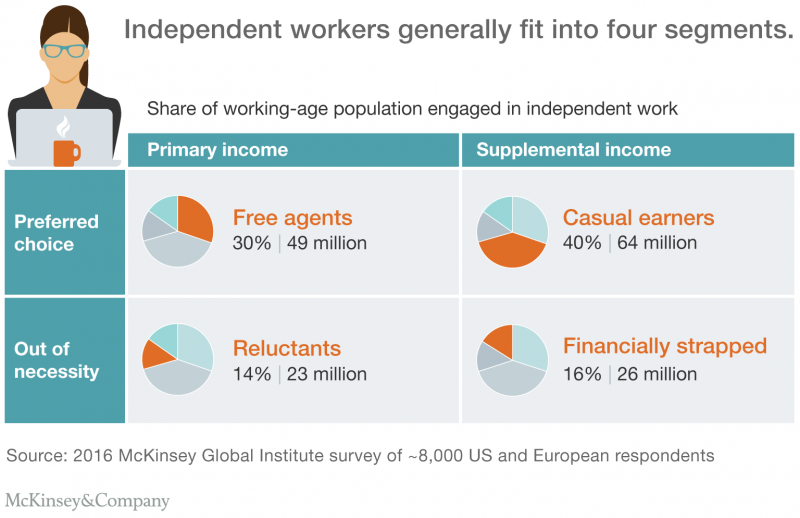
This week a new report by the consulting giant McKinsey was released, and it shows the real size of the gig-economy in the US and the EU. McKinsey estimates that 162 million people in the USA and the EU work in the gig-economy, this is about 20% to 30% of the workforce.
The impact of this report might be bigger than you’d think at first. Not only does it prove what people have been seeing over the past few years, namely that traditional job formats are changing very rapidly, but also that the people that are working in these new type of prefer the flexibility afforded by being their own boss.
They find that for these 162 million people 70%, or 113 million people, working in the gig-economy is their preferred choice. This group can then be divided into two subgroups based on whether for them it is primary income or supplemental income. They call these groups ‘Free Agents’ and ‘Casual Earners’.

Next to that McKinsey finds that another 16%, or 26 million people, work in the gig-economy because they are financially strapped. Basically all these companies allow people to do some part-time extra earning with incredible flexibility. Allowing those in financial need to choose a few hours every week to earn a little bit extra, completely on their terms.
Research by Arun Sundararajan and Samuel Fraiberger from New York University and Harvard University respectively from October 2015 figured this effect out already. They found that: “Peer-to-peer rental marketplaces have a disproportionately positive effect on lower-income consumers across almost every measure.” They also say that the Sharing Economy is: “a force that democratizes access to a higher standard of living.”
McKinsey’s report adds to the growing list of evidence of the positive effect the sharing economy has on our society. Especially for those on the lower end of the earnings spectrum the sharing economy has a huge positive effect.

